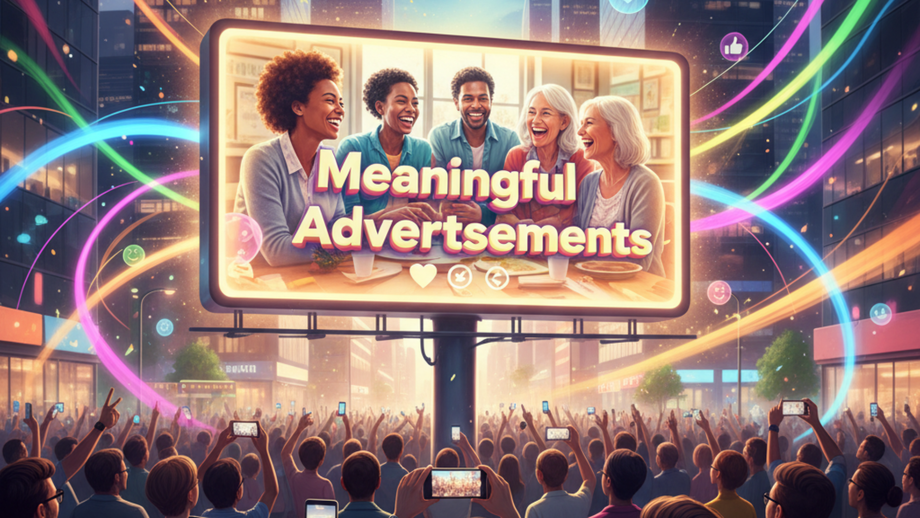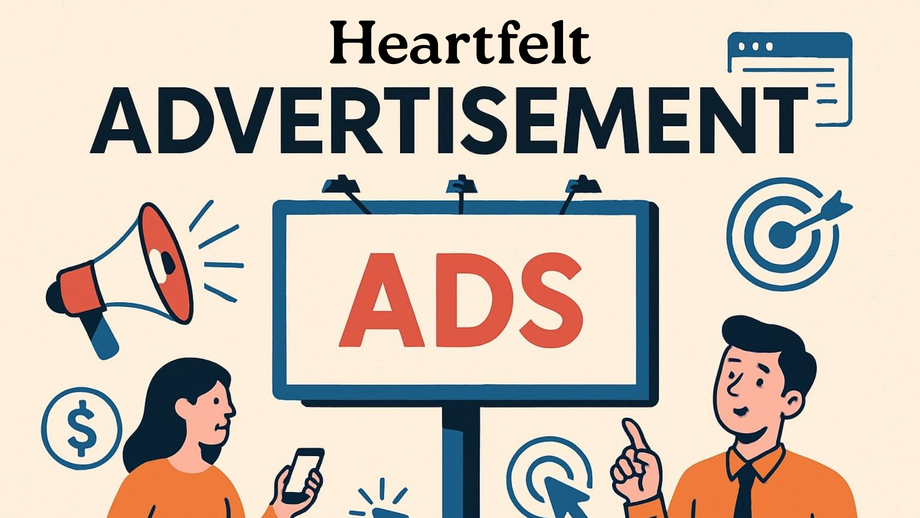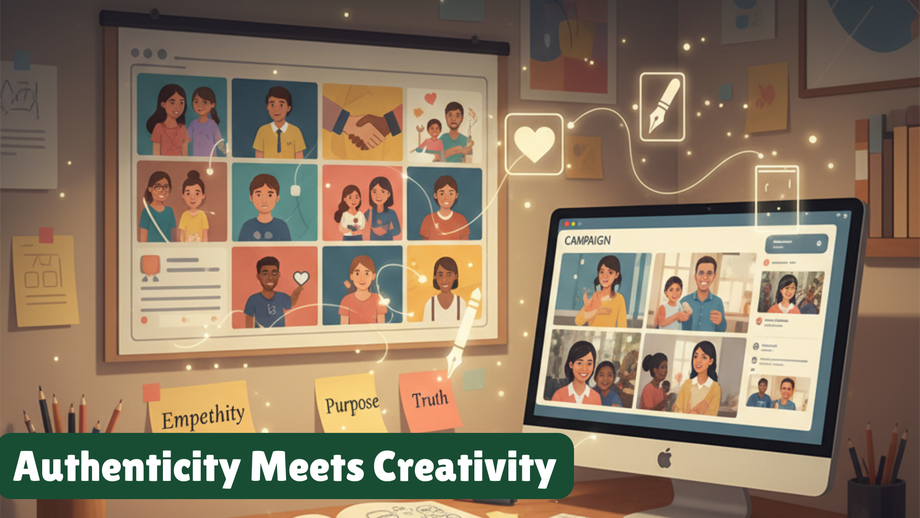What Makes Meaningful Advertisements Truly Resonate With People?
Have you ever seen an advertisement that didn’t just try to sell a product but left a lasting impression? Maybe it sparked an emotion, inspired action, or reflected something you value deeply. In today’s fast-paced digital world, where audiences are constantly bombarded with messages, such experiences are rare.
So, what makes an ad meaningful? Meaningful advertisements bridge human emotion with brand purpose, ensuring they resonate deeply with audiences. It doesn’t merely promote a product; it tells a story that resonates with the audience’s values, experiences, and emotions. In essence, it transforms a commercial message into a memorable experience.
What Makes an Advertisement Truly Impactful?
At their core, impactful ads focus on building connections rather than just driving sales. Instead of focusing solely on product features, pricing, or promotions, they aim to create an emotional bond with the audience.
They achieve this by evoking feelings that align with human experiences, hope, pride, empathy, or nostalgia. They reflect authenticity, not just a polished marketing image. When an audience sees themselves in the story, through shared challenges, dreams, or values, the ad becomes memorable and impactful.
These ads also resonate because they reflect the current cultural and social climate. A message that feels relevant to today’s world, yet rooted in sincerity, captures attention more effectively than traditional hard-sell advertising.
Why Meaning Matters in Modern Advertising
Consumers today are increasingly selective. They are no longer persuaded by flashy visuals or celebrity endorsements alone. Instead, they respond to brands that demonstrate real values and purpose. A brand that communicates authenticity earns trust, builds loyalty, and fosters long-term engagement, a principle that platforms like Revcontent help amplify through value-driven storytelling.
Emotionally driven ads linger in memory longer than purely informational campaigns. When people connect emotionally, they are more likely to talk about the brand, share the content, or participate in campaigns. Iconic examples include Dove’s Real Beauty, Nike’s Dream Crazy, and Google’s Year in Search. These campaigns transcend products; they celebrate universal human experiences and values.
The impact goes beyond immediate sales. Emotional resonance drives advocacy, enhances brand perception, and can turn casual customers into lifelong supporters. This shift underscores the growing importance of meaningful advertising in the digital age.
How to Craft Ads That Truly Connect
Crafting impactful ads doesn’t require an extravagant budget. It requires insight, empathy, and honesty. Brands can start by defining their purpose, why they exist beyond profit. This purpose should then guide the narrative of the campaign.
Stories are the heart of meaningful ads. They should highlight real experiences, challenges, or triumphs, and make audiences feel seen. Emotional appeal should amplify truth, not manipulate feelings. The tone must remain authentic, reflecting the brand’s genuine values.
Consistency is key. A meaningful ad loses credibility if the brand’s actions don’t align with its message. For instance, advocating for environmental sustainability while engaging in wasteful practices can harm trust. An authentic connection arises when words, stories, and actions align seamlessly, a core principle of Marketing Psychology that emphasizes trust through alignment and authenticity.
Examples abound. Dove celebrated real beauty in all forms, Nike honoured courage and perseverance, and Coca-Cola’s Share a Coke campaign personalized a product to create emotional and social connections. Each succeeded because the focus was on values and emotions, not merely selling products.
Avoiding the Pitfalls of Performative Advertising
Not all campaigns labelled as “purpose-driven” are truly meaningful. Audiences quickly detect insincerity. Superficial support for causes without genuine commitment often results in backlash. True meaning requires action. Brands must ensure their advertising messages reflect real-world practices and long-term dedication to the causes they promote.
Performative campaigns may generate short-term attention, but they rarely create lasting connections. In contrast, authentic campaigns build trust, loyalty, and positive word-of-mouth over time.
The Lasting Impact of Meaningful Ads
Advertisements with real impact leave impressions that extend well beyond the campaign’s duration. They influence perception, build communities, and shape cultural conversations. Beyond immediate revenue, they establish emotional bonds that foster trust and loyalty.
A brand that communicates meaningfully is remembered not for its products alone but for the values it embodies. Meaningful ads transform transactions into trust, campaigns into shared experiences, and messages into memories. They don’t just exist in digital feeds; they become part of culture and collective memory.
You can also watch: Introducing 'My Projects' | PowerAdSpy’s New Way to Create Competitors List
Summary
In a crowded digital world, audiences crave sincerity. Meaningful advertisements succeed because they combine emotion, authenticity, and shared human values. They build trust, inspire engagement, and create long-lasting connections that transcend the product itself. Brands that master this approach don’t just sell, they resonate, inspire, and remain memorable.
FAQs
Q1: What defines a meaningful advertisement?
It connects a brand’s purpose with genuine human emotion, creating an authentic bond rather than focusing solely on selling.
Q2: Why are emotionally resonant ads more effective?
Emotional content enhances memory, trust, and engagement, leading to stronger audience loyalty.
Q3: Can small brands create meaningful ads?
Yes. Authenticity, understanding the audience, and telling sincere stories matter more than budget size.
- Art
- Causes
- Crafts
- Dance
- Drinks
- Film
- Fitness
- Food
- الألعاب
- Gardening
- Health
- الرئيسية
- Literature
- Music
- Networking
- أخرى
- Party
- Religion
- Shopping
- Sports
- Theater
- Wellness







